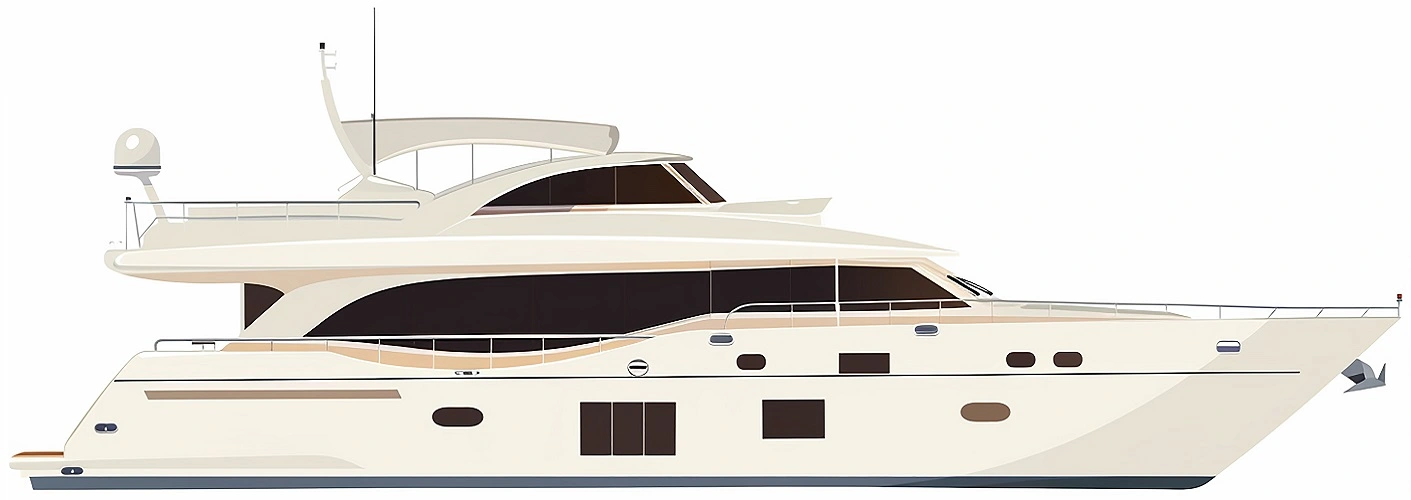
DISCOVER FT MERCATI - TRY FOR FREE
Raw material quotations Yacht production
Raw materials move 'Luxury': how prices influence yacht production
The yacht market, synonymous with luxury and high-end nautical engineering, is profoundly influenced by fluctuations in the prices of raw materials. Four of these are the most widely used: Aluminium, Copper, Steel and Brass, which play a crucial role, directly affecting production costs and the competitiveness of companies in the sector.
The Impact of FT Mercati Quotations on Production Costs
FT Mercati, with its constant monitoring of commodity prices, provides yacht manufacturers with essential support:
- Strategic planning: anticipate changes in production costs and take preventive measures to mitigate the risks of price increases.
- Purchase optimisation: negotiate more advantageous supply contracts, taking advantage of the most favourable market moments.
- Setting selling prices: accurately calculate production costs and determine a competitive selling price while ensuring an adequate profit margin.
Raw material quotations Yacht production
1. Aluminium: strength and lightness
Aluminium is widely used in yacht construction for its lightness, corrosion resistance and ease of processing; it is mainly used in the construction of:
- Hulls: thanks to its lightness, Aluminium helps reduce the yacht's overall weight, improving performance and fuel consumption.
- Superstructures: thanks to its lightness, Aluminium helps reduce the yacht's overall weight, improving performance and fuel consumption.
- Tanks: Aluminium is an ideal material for the construction of fuel and fresh water tanks due to its resistance to corrosion.
2. Copper: conductivity and aesthetics
Copper is valued for its high electrical and thermal conductivity, as well as its aesthetic appearance; it is mainly used in:
- Electrical installations: for the realisation of electrical wiring and components, ensuring efficient transmission of electrical energy.
- Cooling systems: due to its high thermal conductivity, Copper is used in cooling systems for engines and other components.
- Finishes: Copper is often used to make decorative elements such as handles, railings and aesthetic details, giving yachts an elegant and refined appearance.
3. Steel: robustness and versatility
Steel is a very versatile material, used in numerous applications in shipbuilding; it is mainly used for:
- Hulls: the construction of large hulls, ensuring considerable strength and endurance.
- Load-bearing structures: realise the yacht's load-bearing structures, such as bulkheads and frames.
- Anchors and chains: the production of anchors and chains, thanks to its high tensile strength.
4. Brass: aesthetics and corrosion resistance
Brass, an alloy of Copper and Zinc, is prized for its aesthetic appearance and resistance to corrosion; it is mainly used in:
- Finishes: to create decorative elements such as handles, taps and aesthetic details, giving yachts an elegant and refined appearance.
- Valves and fittings: due to its resistance to corrosion, brass is used for the production of valves and fittings for plumbing systems.
Raw material quotations, such as those offered by FT Mercati, have a significant impact on yacht production costs. Constantly monitoring these quotations is crucial for yacht manufacturers, who need to adopt flexible and innovative sourcing strategies to ensure the competitiveness of their yachts.

DISCOVER FT MERCATI - TRY FOR FREE
